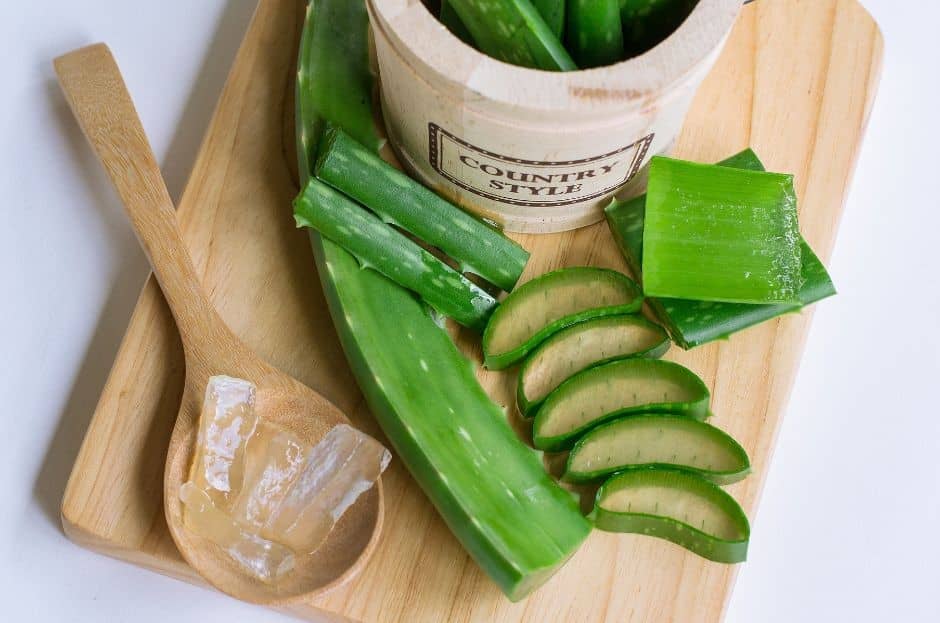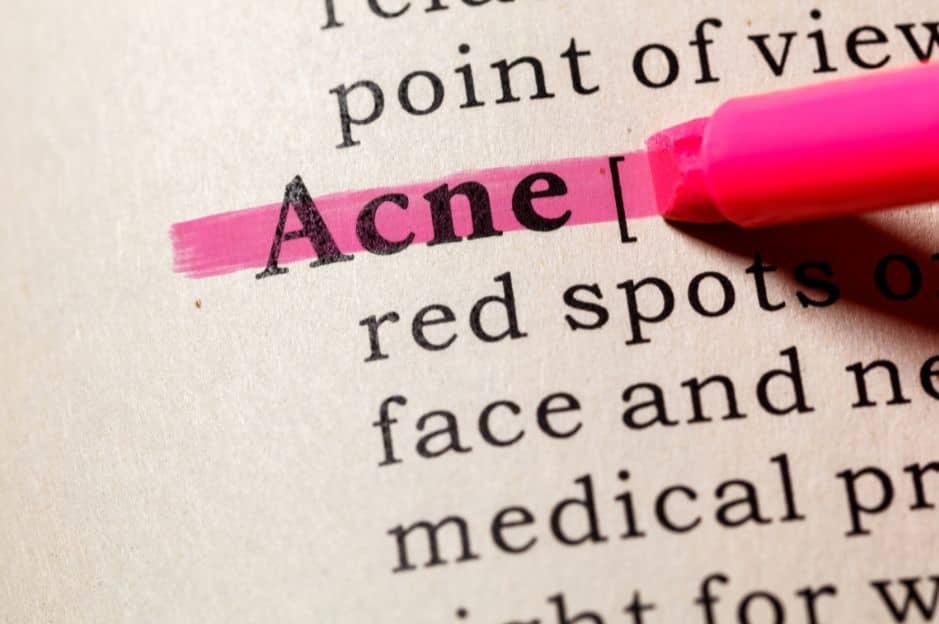Acne is a skin condition that affects most people at some point in their lives. It is a common disorder that can be treated with various medications and cured with the right lifestyle changes. When we talk about lifestyle changes, we also mean natural and effective solutions to cure acne.
When oil and dead skin cells clog up your pores, inflammation and bacteria start growing and cause breakouts. As a result, acne sufferers usually have black or whiteheads on their skin and red marks from inflamed pimples or cysts.
Acne affects almost everyone at some point in their lives and is one of the most common disorders. It occurs when your pores get clogged up with oil and dead skin cells, which then causes inflammation and bacteria growth in the area to cause breakouts.
List of Top 15 Natural And Effective Solutions To Cure Acne
There are many causes of acne, and finding the right solution for your skin can be challenging. But with these 15 natural and effective solutions to cure acne, there is a solution for every type of acne.
Apple cider vinegar: Apple cider vinegar has antibacterial properties that can help fight off bacteria in the skin and reduce inflammation. Additionally, it contains antioxidants that can aid in repairing free radical damage to the skin. Mix one tablespoon of apple cider vinegar with two tablespoons of water to make a toner, or mix it with honey as a mask to fight acne-causing bacteria while moisturising the skin.
Lemon juice: Lemon juice works as an astringent and exfoliant, which means it can help remove excess oil from your skin and dead skin cells. It also contains vitamin C, which can help maintain the pH levels in your skin. Mix equal parts with water to make a toner for oily or acne-prone skin, or mix it with honey for a mask that will help fight bacteria and reduce inflammation on acne-prone skin.
Honey: Honey is a natural and effective way to heal acne. Honey is an antibacterial and anti-inflammatory agent, so it can help heal irritated skin. It’s also a natural humectant, which means it helps moisturise the skin. So adding honey to your cleanser or moisturiser can help reduce the amount of acne you have, soothe irritated skin, and give you softer-looking skin.
Green Tea: Green tea is high in antioxidants called catechins, which help the skin fight free radicals. It also helps maintain the skin’s elasticity and can reduce the appearance of age spots. Apply it by using a few drops of green tea extract in your moisturiser or facial oil for dry, mature skin.
Hibiscus: Hibiscus has the highest antioxidant levels among all known plants. It may help reduce redness, irritation, and inflammation in the skin. It may help reduce redness, irritation, and inflammation in the skin.
Aloe Vera: Aloe vera is a plant that has been used as a natural medicine for centuries. Aloe vera has a lot of uses. It can help with acne and fungal infections by reducing inflammation and redness and killing bacteria and viruses. Aloe vera contains several different vitamins, minerals, and fibers.
The aloe vera gel comprises an assortment of different nutrients that can benefit the skin. The benefits of aloe vera gel are as follows:
- It is an antioxidant that can keep skin looking healthy and fresh.
- Aloe vera has antifungal and antibacterial properties, which can be helpful for skin conditions like acne.-It is a moisturiser that can help to nourish and hydrate the skin.

Rose Hip: Rose hips are berries growing on a rose plant. They are best known for their high levels of vitamin C, which is essential for the health of skin cells. Rose hips have been used in herbal remedies to treat acne and other skin conditions. They are also known for their anti-inflammatory and antioxidant properties.
Chamomile: Chamomile is a herb used for centuries to help people with skin conditions such as acne. Chamomile is a soothing herb with anti-inflammatory properties that can help control sebum production, fight acne and ageing skin, decrease inflammation, and treat eczema.
It is also commonly used for anxiety, sleep disorders, and digestive problems. You can make chamomile tea by steeping one teaspoon of dried chamomile flowers in one cup of boiling water. The tea can then be drunk as desired.
Chamomile should not be taken with other medications because it may interfere with their effectiveness or cause an overdose.
Cranberry: Cranberries are small, dark red fruit often used in cooking. They are also known for their health benefits and as an acne treatment. The term cranberry refers to any member of the genus Vaccinium, but especially Silurian varieties. Cranberries are high in vitamin C and are an excellent dietary fiber source.
Cranberry juice has antibacterial properties, which help prevent urinary tract infections. Cranberry juice can also help treat and prevent bladder infections.
Coconut oil and water: Coconut juice is a natural remedy for acne and dry skin problems. It contains antioxidants, vitamins, and minerals that are good for the skin. Unfortunately, it also has lauric acid, which destroys bacteria, fungi, and viruses. That causes acne.
Regular coconut water intake also helps to prevent sunburn and skin infections. In addition, coconut oil is an effective treatment for dry skin conditions, eczema, and other skin problems. You can get coconut oil and water quickly at many grocery stores or on the Internet.
Coconut oil has more than 85% saturated fat, which can help lower cholesterol and blood pressure levels. It also has a lot of medium-chain triglycerides that are easy to digest.
Avocado: Avocado is one of the most nutritious fruits on earth. High in oleic acid and vitamin E, avocados are a great natural moisturiser that can help with dry skin issues and general healing. It can also help reduce redness, prevent wrinkles, and improve skin elasticity.
Avocado can also be used as a lip balm to soothe and heal dry lips.
Oatmeal: Oatmeal is a natural ingredient for centuries to heal skin problems. It can absorb moisture and regulate oil production. It is also an excellent natural exfoliator.
The benefits of oatmeal are numerous, and it’s easy to see why it’s one of the most popular ingredients in skin care products. Oatmeal is a great skincare ingredient because it helps exfoliate dry and flaky skin. In addition, it contains natural oat proteins that help moisturise and build collagen. Oatmeal also has anti-inflammatory properties, which can soothe irritated skin.
Whole grain: Whole grains are a great source of fiber, which is necessary for the health of our digestive system. They also provide us with iron and magnesium, both essential for producing red blood cells.
Many believe that whole grains aren’t suitable for skin conditions such as acne or dry skin. But this is not true! On the contrary, whole grains have many benefits that can help with these problems. For example, they contain vitamins A and E, potent antioxidants that can help reduce skin inflammation.
Brown rice: Brown rice is much healthier than white rice as it is a whole grain, while white rice contains processed carbohydrates. Brown rice provides essential nutrients like fiber + protein, and minerals such as selenium and manganese. It is also considered an anti-inflammatory food because of its high level of phytochemicals.
Brown rice can help with acne problems and dry skin, according to some experts. Although brown rice has been used for centuries as a staple in Asian cuisine, it is full of essential nutrients such as fiber, protein, and minerals.
Potatoes are a good source of vitamin C, an important antioxidant that helps fight against free radicals.
Potatoes are not just good for making French fries or mashed potatoes. They can also be a beauty product for treating acne and dry skin problems.
According to the American Journal of Clinical Nutrition, potatoes have high levels of vitamin C, an important antioxidant that helps fight against free radicals. Additionally, potatoes have other vitamins and minerals such as potassium, manganese, and copper, which help strengthen the immune system and promote healthy skin cells.
How Can a Dermatologist Help Correct the Problem of Acne?
Acne can be a complex skin condition to manage. Therefore, it’s essential to see a dermatologist for treatment options, as they are experts in this field and can help you find the best solution.
There are many different types of treatments that dermatologists will recommend for acne, depending on the severity of the condition. There are also other ways that dermatologists may treat acne, such as topical medications, oral medications, and even surgery.
The most common type of acne treatment is topical medication. Topical medications usually come in creams or gels, reducing inflammation or killing bacteria on the skin’s surface. Dermatologists may also prescribe oral medication if topical medication is not enough to treat your acne breakouts.
Conclusion & Takeaways
The conclusion and takeaways of this article are that there is no one size fits all solution for acne. Instead, the best way to get rid of pimples fast is to find out what your specific skin type is and then use an acne treatment that suits it. Using turmeric paste is also a good idea. Turmeric’s anti-inflammatory and antioxidant properties aid in the natural treatment of acne.
